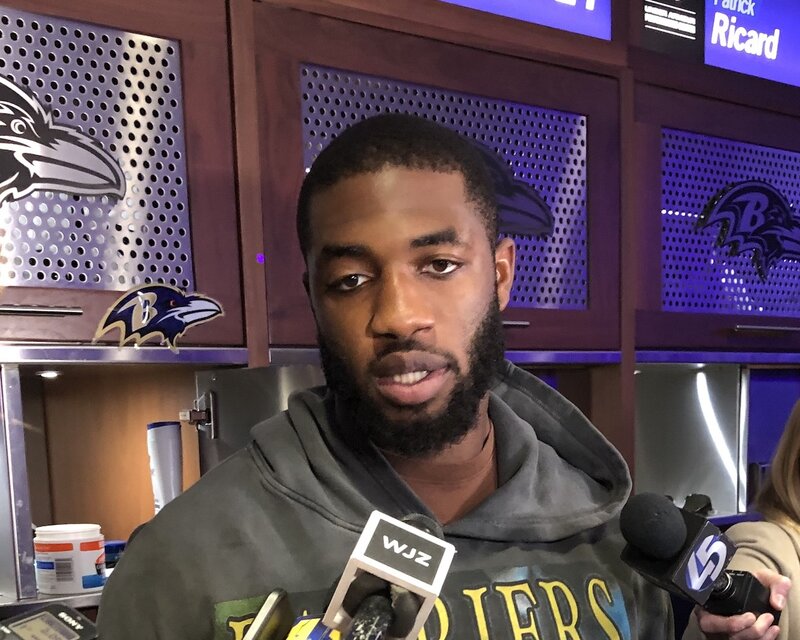a decision,’ and was telling me all the reasons why. So, there’s a process in place. What we try to do is we try to minimize the downside and maximize the upside. The other thing about that is, Steve [Bisciotti] and John knew I had already gone through that when Brian [Billick] fired Jim Fassel. So, I had a history of why we did it and what we went through to do it. I was able to [say], ‘This is the reason why we did it back then. How does it match up?’ ”
In the end, Cam Cameron did a lot of things right. He did a whole lot of things right. But the Ravens organizational philosophy is based on winning a Super Bowl. The offense wasn’t as good as it should be, and the team was making a huge decision, a huge investment in becoming an offensive team.
Because of the pending contract for Flacco and Harbaugh’s obvious affection for Cameron, many around the organization believed and reported that Bisciotti was more intimately involved in the firing.
Bisciotti vociferously disputes that theory.
“To think that I could help grow John into the leader that he is and then tell him to fire an assistant coach?” Bisciotti said. “It just goes against everything I believe. Then you’d have to believe that everything else you’ve read over the last 10 years is a lie. I didn’t get where I was in my business by overruling people who have the authority in their contracts and in their handshake with me.”
When Harbaugh was pressed, he was more succinct. “I could’ve told Steve after I did it,” Harbaugh said. “In all fairness he wasn’t going to talk me out of it. Steve really had nothing to do with it because we had talked about all kinds of scenarios. Steve and I talk all the time. Honestly, I talked more to Ozzie about it.”
Harbaugh came into work at 5 a.m. on the Monday after the Redskins game. Cameron had already been there since 4 a.m. watching film and preparing for the Broncos. Cam sensed tension.
“You can tell in decision-makers’ eyes, in their body language,” Cameron later told The New York Times.
“Cam was great about it,” Harbaugh said. “He said, ‘I saw it coming’ and that he completely understood. He even said it was the right thing to do.”
Cameron later said: “If I’m in charge, I’m saying: ‘Why are we inconsistent? We need to get the team’s attention.’ It was a brilliant move. Everyone on the team took a look in the mirror after that.”
Cameron later accepted the job as offensive coordinator at LSU and said to local reporters in Baton Rouge: “Sometimes a change needs to be made. Obviously, he felt like it needed to be done. Quoting Ray Rice, ‘It was a wakeup call.’ Good is not good enough. The Ravens were trying to be great and sometimes you’ve got to do something to get people moving in a different direction to try to be great.”
“I find it surprising that people found it surprising,” Cameron said. “I have so much respect for the organization and the people who made the decision there’s no way I could be bitter. No mixed emotions. Something needed to be done. If it had to be me so John Harbaugh and everybody could benefit, I’m fine with that. Any time you make a change at head coach, coordinator, and a quarterback it’s a gamble. But great leaders make smart gambles.”
Harbaugh took a gamble in Week 14 by firing a decorated offensive coordinator heading into back-to-back games in Baltimore with the Manning brothers. He replaced Cameron with Peyton Manning’s longtime quarterbacks coach, Jim Caldwell.
“My charge – our responsibility as a coaching staff – is to maximize the opportunities for our team to win, and we can still reach all of our goals for this season,” Harbaugh said. “We have a motto we follow on this team: W.I.N. – What’s Important Now – and what’s important now is to find ways to get better, win the AFC North and advance to the playoffs. With our coaches and players, the solution is in the building. We are going to make the most of our opportunities going forward, and this change gives us a better possibility to achieve our goals.”
Caldwell was a 35-year coaching veteran. In his first year as head coach in Indianapolis in 2009, he led the Colts to the AFC Championship and a berth in Super Bowl XLIV. He earned a Super Bowl ring in 2006 and spent six seasons as the quarterbacks coach. Before that Caldwell spent eight years as the head coach at Wake Forest.
“The reason why I coach and the reason why I’m involved in [football] is because I have a great passion for the game,” Caldwell said. “I love a challenge. There is nothing about professional football that’s easy. It’s going to require everything you have and then just a little bit more. That’s what makes me excited about what we are doing. I get a chance to step in. The situation is tough. You hate to see a colleague lose his job. When you’ve been around as long as I have … I’ve been fired a few times as well. That’s the tough part of it. But nevertheless, I certainly am excited about having an opportunity to work with some outstanding men in a great organization with outstanding people surrounding me. Let’s see what we can do.”
It’s amazing that three days earlier if David Reed had fallen on a loose ball at Fed Ex Field, the Ravens would’ve won and Cam might still be with the Ravens. Or if Kirk Cousins didn’t pull off a miracle? Or if someone could have made a tackle on the last punt?
But the Ravens lost to the Redskins and the offense changed.
Instead, Jim Caldwell was calling plays now. And Cam Cameron was gone.
This was an excerpt from Chapter 15 of the definitive book on the Ravens’ Super Bowl XLVII victory in New Orleans, Purple Reign 2: Faith, Family & Football – A Baltimore Love Story.
You can purchase both Purple Reign books by clicking here:
You can read an excerpt from Chapter 9 here where Joe Flacco and Steve Bisciotti talk about the risk of $100 million:
You can read an excerpt from Chapter 7 here on all things Joe Flacco and why the Baltimore Ravens fell in love with him:






























